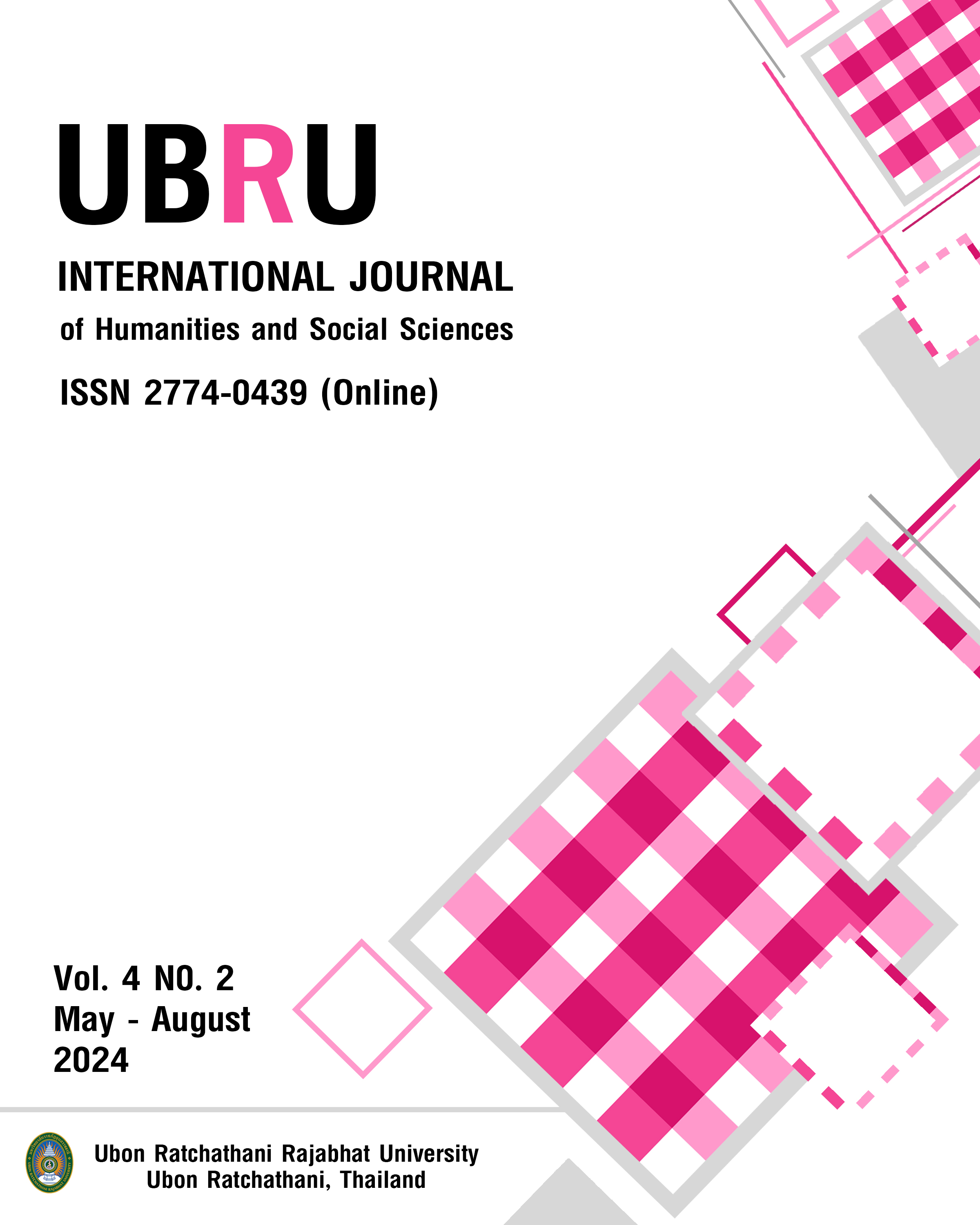Identifying the Needs of Chinese Business Students for Developing BELF Pedagogy
Main Article Content
Abstract
This study aims to explore the developmental needs of Chinese international business students in the context of Business English as a Lingua Franca (BELF) teaching methodology and investigate how to enhance their intercultural communication competence by developing tailored instructional materials. Conducted at Heilongjiang International University in China, the research adopts an explanatory sequential design, utilizing both qualitative and quantitative methods. Through needs analysis questionnaires administered to students and semi-structured interviews conducted with Business English teachers, the study delves into the nuanced requirements of students, aiming to provide essential guidance and insights for designing and implementing more effective BELF courses. The findings reveal diverse needs among Chinese students, particularly in English proficiency, business-specific knowledge, business communication skills, cultural awareness, and acculturation skills. In response to these needs, the study proposes a range of strategies, including integrating business-specific knowledge, enhancing English proficiency, cultivating business communication skills, fostering cultural awareness, promoting acculturation skills, and fostering positive attitudes towards intercultural communication. The research outcomes serve as valuable references for optimizing and developing Business English teaching materials, offering crucial theoretical support and practical guidance for enhancing Chinese students' competitiveness and international communication skills in international business.
Article Details
References
Avermaet, P. & Gysen, S. (2006). From needs to tasks: Language learning needs in a task-based approach. Task-based Language Education: From Theory to Practice (pp. 17-46).
Barrett, M., Byram, M., Lazar, I., Mompoint-Gaillard, P., & Philippou, S. (2013). Developing intercultural competence through education. Strasbourg: Council of Europe Publishing.
Basturkmen, H. (2010). Developing Courses in English for Specific Purposes. Basingstoke: Palgrave Macmillan.
Belcher, D., Johns, A. M., & Paltridge, B. (2011). New Directions in English for Specific Purposes Research. University of Michigan Press.
Byram, M. (1997). Teaching and assessing intercultural communicative competence. Clevedon: Multilingual Matters.
Cai, L., & Lv, J. (2019). Task-based Approach to Develop Intercultural Communicative Competence in College English Education. Journal of Language Teaching and Research, 10(6), 1279-1287.
Cowling, J. D. (2007). Needs Analysis: Planning a Syllabus for a Series of Intensive Workplace Courses at a Leading Japanese Company. English for Specific Purposes, 26, 426–442.
Ellis, R. (2003). Task-based Language Learning and Teaching. Oxford: Oxford University Press.
Fantini, A. E. (2019). Intercultural Communicative Competence in Educational Exchange: A Multinational Perspective. New York & London: Routledge.
Gong, Y., & Luo S.Q. (2023). Task-based language teaching. Beijing: People’s Education Press.
Gu, Y. (2023). The cultivation of intercultural communication skills in Business English teaching in colleges and universities. Advances in Higher Education, 7(32), 161–162.
House, J. (2002). Developing pragmatic competence in English as a Lingua Franca. In K. Knap & C. Meierkord (Eds.), Lingua Franca Communication (pp. 245_268). Frankfurt: Peter Lang.
Hutchinson, T., & Waters, A. (1987). English for specific purposes. Cambridge University Press.
Hyland, K. (2006). English for Academic Purposes: An Advanced Resource Book. London: Routledge.
Kankaanranta, A & Louhiala-Salminen, L. (2011). Professional communication in a global business context: The notion of global communicative competence. IEEE Transactions on Professional Communication, Special Issue on Professional Communication in Global Contexts, 54, 244-262.
Kankaanranta, A., & Planken, B. (2010). BELF competence as business knowledge of internationally operating business professionals. The Journal of Business Communication, 47(4), 380-407.
Klimova, B., & Pikhart, M. (2020). Current Research on the Impact of Foreign Language Learning Among Healthy Seniors on Their Cognitive Functions from a Positive Psychology Perspective-A Systematic Review. Frontiers in Psychology.
Li, F., & Dong, L. (2021). Cultivation of intercultural communication competence for Business English majors. Open Journal of Business and Management, 9(2), 545-556.
Martins, H. F. (2017). Perspectives on Business English as a Lingua Franca in Business Communication. Teaching, Education and Curriculum Studies, 2(2), 61–67.
Pullin, P. (2015). Culture, Curriculum Design, Syllabus, and Course Development in the Light of BELF. Journal of English as a Lingua Franca, 4(1), 31–53.
Rai L., Deng C., Lin S., & Fan L. (2023). Massive Open Online Courses and intercultural competence: analysis of courses fostering soft skills through language learning. Frontiers in Psychology, 14, 1219478.
Robinson, P. C. (1989). An overview of English for Specific Purposes. In H. Coleman (Ed.), Working with Language: A Multidisciplinary Consideration of Language Use in Work Contexts (pp. 55-72). Longman.
Seidlhofer, B. (2005). English as a Lingua Franca. ELT Journal, 59, 229-241.
Southwood, F. & Van Heukelum, L. (2020). Intercultural communicative competence is essential for students of international business - but can it be taught? The case of third-year BCom students. South African Journal of Higher Education. 34. 10.20853/34-3-3366.
Tran, T. T. T., & Vo, T. P. (2023). Needs analysis about intercultural communicative competence among undergraduate tourism students. Journal of Psycholinguistic Research, 5(2) 2599–2620.


